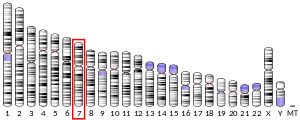| CTTNBP2 | |||||||||||||||||||||||||||||||||||||||||||||||||||
|---|---|---|---|---|---|---|---|---|---|---|---|---|---|---|---|---|---|---|---|---|---|---|---|---|---|---|---|---|---|---|---|---|---|---|---|---|---|---|---|---|---|---|---|---|---|---|---|---|---|---|---|
| Identifiers | |||||||||||||||||||||||||||||||||||||||||||||||||||
| Aliases | CTTNBP2, C7orf8, CORTBP2, Orf4, cortactin binding protein 2 | ||||||||||||||||||||||||||||||||||||||||||||||||||
| External IDs | OMIM: 609772 MGI: 1353467 HomoloGene: 14125 GeneCards: CTTNBP2 | ||||||||||||||||||||||||||||||||||||||||||||||||||
| |||||||||||||||||||||||||||||||||||||||||||||||||||
| |||||||||||||||||||||||||||||||||||||||||||||||||||
| |||||||||||||||||||||||||||||||||||||||||||||||||||
| |||||||||||||||||||||||||||||||||||||||||||||||||||
| |||||||||||||||||||||||||||||||||||||||||||||||||||
| Wikidata | |||||||||||||||||||||||||||||||||||||||||||||||||||
| |||||||||||||||||||||||||||||||||||||||||||||||||||
Cortactin-binding protein 2 is a protein that in humans is encoded by the CTTNBP2 gene.[5][6]
Function
This gene encodes a protein with six ankyrin repeats and several proline-rich regions. A similar gene in rat interacts with a central regulator of the actin cytoskeleton.[6]
Interactions
CTTNBP2 has been shown to interact with:
References
- 1 2 3 GRCh38: Ensembl release 89: ENSG00000077063 - Ensembl, May 2017
- 1 2 3 GRCm38: Ensembl release 89: ENSMUSG00000000416 - Ensembl, May 2017
- ↑ "Human PubMed Reference:". National Center for Biotechnology Information, U.S. National Library of Medicine.
- ↑ "Mouse PubMed Reference:". National Center for Biotechnology Information, U.S. National Library of Medicine.
- ↑ Cheung J, Petek E, Nakabayashi K, Tsui LC, Vincent JB, Scherer SW (Nov 2001). "Identification of the human cortactin-binding protein-2 gene from the autism candidate region at 7q31". Genomics. 78 (1–2): 7–11. doi:10.1006/geno.2001.6651. PMID 11707066.
- 1 2 "Entrez Gene: CTTNBP2 cortactin binding protein 2".
- 1 2 3 4 5 Goudreault M, D'Ambrosio LM, Kean MJ, Mullin MJ, Larsen BG, Sanchez A, Chaudhry S, Chen GI, Sicheri F, Nesvizhskii AI, Aebersold R, Raught B, Gingras AC (Jan 2009). "A PP2A phosphatase high density interaction network identifies a novel striatin-interacting phosphatase and kinase complex linked to the cerebral cavernous malformation 3 (CCM3) protein". Mol. Cell. Proteomics. 8 (1): 157–71. doi:10.1074/mcp.M800266-MCP200. PMC 2621004. PMID 18782753.
External links
- Human CTTNBP2 genome location and CTTNBP2 gene details page in the UCSC Genome Browser.
Further reading
- Ohoka Y, Takai Y (1998). "Isolation and characterization of cortactin isoforms and a novel cortactin-binding protein, CBP90". Genes Cells. 3 (9): 603–12. doi:10.1046/j.1365-2443.1998.00216.x. PMID 9813110. S2CID 22413036.
- Nagase T, Kikuno R, Hattori A, Kondo Y, Okumura K, Ohara O (2000). "Prediction of the coding sequences of unidentified human genes. XIX. The complete sequences of 100 new cDNA clones from brain which code for large proteins in vitro". DNA Res. 7 (6): 347–55. doi:10.1093/dnares/7.6.347. PMID 11214970.
- Zink D, Amaral MD, Englmann A, Lang S, Clarke LA, Rudolph C, Alt F, Luther K, Braz C, Sadoni N, Rosenecker J, Schindelhauer D (2004). "Transcription-dependent spatial arrangements of CFTR and adjacent genes in human cell nuclei". J. Cell Biol. 166 (6): 815–25. doi:10.1083/jcb.200404107. PMC 2172106. PMID 15364959.
This article is issued from Wikipedia. The text is licensed under Creative Commons - Attribution - Sharealike. Additional terms may apply for the media files.




